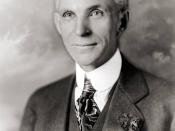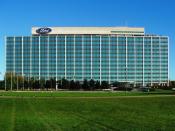INTRODUCTION
Employers spend billions on diversity programs--a new "strategic imperative"--and support an entire industry devoted to diversity management, but there's little evidence of improved business performance, financial results, or accountability.
ADVERSITY IN THE AMERICAN LANDSCAPE
The multibillion-dollar diversity industry is thriving in corporate America. At a time when charges of racial harassment are way up, and racial discrimination class-action lawsuits are at an all time high, diversity programs are flourishing. Organizations appoint diversity officers. They hire consultants, coaches, and trainers. They adopt diversity scorecards, benchmarks, and best practices, and send executives to diversity conferences and leadership training seminars. Despite the astonishing number of products and services, one item is in very short supply: quantifiable methods for measuring performance results or the return on diversity spending. For years, the industry has claimed that diversity programs yield higher performance and greater productivity, but the evidence offered is largely based on limited data collected through questionable methods.
If there is little evidence on performance results, there's even less indication of effectiveness in the compliance data. Although most diversity programs trace their roots to compliance efforts and, in some cases, the struggle against racism, the number of job-discrimination charges filed with the EEOC, including race-based charges, are again at an all time high.
The recent increase in charges can be linked to the recent increase in unemployment; work-related lawsuits typically rise during economic downturns--but there was no evidence of improved compliance before the recession hit. Many companies that are routinely praised for their diversity programs...including Coca-Cola and Ford Motor Company--still find themselves in court fighting epic racial-discrimination lawsuits. Wal-Mart is facing the largest sex-discrimination lawsuit in U.S. history, with as many as 500,000 plaintiffs. Charges of racial harassment filed with the EEOC have increased in the past decade.
The diversity industry and its...


